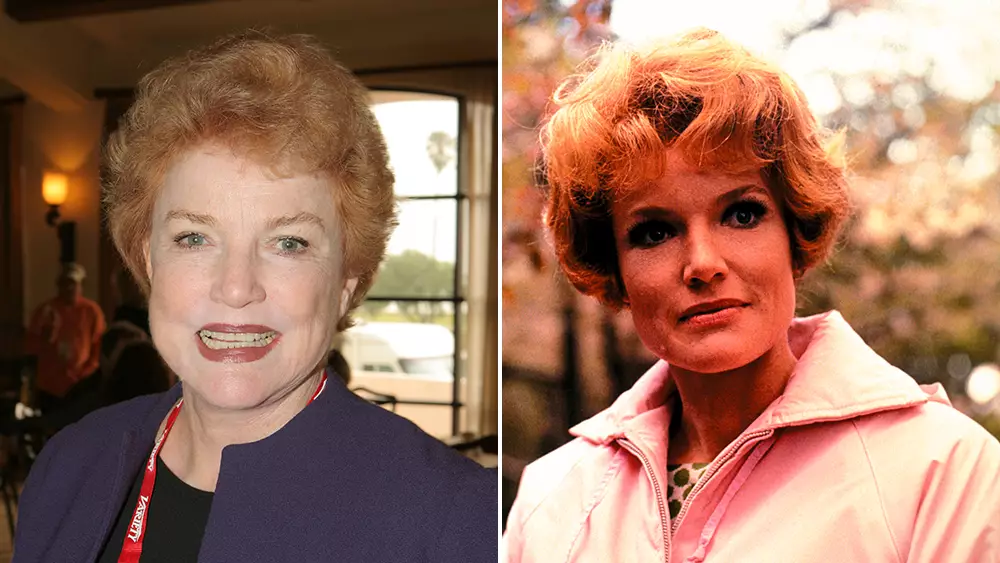The passing of Pippa Scott, at the age of 90, serves as a poignant reminder of the enduring impact one individual can have on both the arts and society. The veteran actress, whose illustrious career began on stage and transitioned seamlessly into film and television, was more than just a talented performer; she was a trailblazer in many ways. Born to parents deeply entrenched in the entertainment industry in 1934, Scott’s journey from the stages of Broadway to iconic roles in films like “The Searchers” speaks volumes about her dedication to her craft.
Her portrayal of Lucy Edwards, abducted in John Ford’s classic, was not merely a performance; it was a reflection of how women’s narratives could be expressed powerfully through cinema, even if they were often overshadowed in a male-dominated industry. While her filmography is filled with significant titles, it is the subtlety and depth with which she approached her roles that left an indelible mark on those who witnessed her talent.
The Unseen Gems of a Television Pioneer
In addition to her film roles, Scott’s contributions to television demonstrate her versatility and foresight. Appearing in iconic shows like “The Twilight Zone” and “Gunsmoke,” she navigated a burgeoning medium that would become a staple in American households. Her ability to adapt to various genres and formats highlights not only her skill as an actress but also her understanding of the evolving landscape of visual storytelling. In an era when women were often relegated to supporting roles, Scott challenged this stereotype by carving a niche for herself, showcasing the capabilities of women behind and in front of the camera.
Yet, her talents ran far deeper than performance. Scott’s marriage to Lee Rich, a pivotal figure in the expansion of television drama, further integrated her life into the fabric of an industry that, at the time, was experiencing rapid growth. Their collaborative relationship ultimately reflected the potent intersection of love and professional ambition within the realm of entertainment.
A Fierce Advocate for Humanity
Pippa Scott did not merely limit her legacy to her contributions to film and television; she leveraged her celebrity status for a greater cause. In the 1990s, she directed her passion toward human rights, demonstrating a commitment that transcended her career in the arts. Founding the International Monitor Institute—a bold move to gather crucial evidence for prosecuting war crimes—she not only stood against injustice but also utilized her platform in a way that few artists dare to today. This aspect of her life, her determination to tackle global crises like the Bosnian and Rwandan genocides, sets her apart as a true powerhouse of humanitarianism.
As a producer, Scott’s work on PBS’s “Frontline” epitomized her dual commitment to storytelling and social justice. Through these endeavors, she influenced not only the entertainment landscape but also the public’s perception of critical global issues. It is this duality—of being both an artist and an activist—that beckons a reevaluation of how we measure an individual’s contributions to society.
Pippa Scott’s narrative reaches far beyond her birth date and death; it underscores the responsibility artists carry in shaping societal issues. Instead of merely mourning her loss, it is essential to celebrate her triumphs and recognize the profound influence she wielded both on screen and off. The world truly needs more individuals like Pippa Scott, whose artistry is matched only by their commitment to fostering a more just and compassionate society.

Leave a Reply